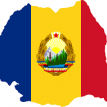Search the Community
Showing results for tags 'programming'.
-
Nu m-am putut ab?ine s? nu m? abonez la ei ?i m-am gândit s? împ?rt??esc cu voi lec?iile a?a zisor "Gagici care te înva?? programare" . 1.INTERNET INTRO 2.HTML 3.CSS 4.Programming 5.PHP 6.SEO
-
Hi, Another great resource for pentesting and programming is edX. They have some free and paid courses. Worth taking a look, Software Development Fundamentals: https://www.edx.org/course/software-development-fundamentals-pennx-sd1x Intro to Computing using Python: https://www.edx.org/course/introduction-computing-using-python-gtx-cs1301x Data Science Orientation: https://www.edx.org/course/data-science-orientation-microsoft-dat101x-2 How VR Works: https://www.edx.org/course/how-virtual-reality-vr-works-uc-san-diegox-cse165x Comp Sci Essentials for software development: https://www.edx.org/professional-certificate/computer-science-essentials-software Java and Android foundation: https://www.edx.org/professional-certificate/java-android-foundation Software Development: https://www.edx.org/micromasters/software-development Machine Learning: https://www.edx.org/course/machine-learning-columbiax-csmm-102x-0 Artificial Intelligence: https://www.edx.org/course/artificial-intelligence-ai-columbiax-csmm-101x-0 How to Code: simple data: https://www.edx.org/course/how-code-simple-data-ubcx-htc1x Professional Android App Development: https://www.edx.org/course/professional-android-app-development-galileox-caad003x There are many more courses to be explored, these are just some courses I find interest in. Good Luck.
-
Acum totul e corect politic @MrGrj Python joins movement to dump 'offensive' master, slave terms Python creator Guido van Rossum retired as "benevolent dictator for life" in July, but like Michael Corleone in The Godfather III, he's been pulled back in to resolve a debate about politically incorrect language. Like other open source communities, Python's minders have been asked whether they really want to continue using … Sursa: https://forums.theregister.co.uk/forum/6/2018/09/11/python_purges_master_and_slave_in_political_pogrom/#c_3610915 A quiet debate has developed for years in the coding community, forcing programmers to ask whether the terms "master" and "slave" are not insensitive. Now Python, one of the world's most popular programming languages, has abandoned the terminology – and not everyone is happy with it. Master / Slave is generally used in hardware, architecture and coding to refer to a device, database or process that controls another. For more than a decade, there has been some concern that the terms are offensive because of their relationship to the institution of slavery. Last week, a developer named Victo Stinner published four pull requests asking the Python community to consider changing the terms Master / Slave with something like Parent / Worker. "For reasons of diversity, it would be nice to try to avoid the" master "and" slave "terminology that can be associated with slavery," he wrote to explain his thinking. This is the internet, so people have opinions. Some people did not agree with the proposal in measured terms and simply did not think it was necessary. Others have launched on anti-diversity screeds and are predictably talking about censorship and mental control. "Seeing all the PC / SJW absurdities around me, I'm afraid this may be the beginning of Python becoming PCython," wrote a developer. Another commentator decided to take things literally, saying: "As far as I can [ sic ] I say that there is not a single instance where documents use" master "as a reference to human slavery or where use could be seen implicating an endorsement of that notion. " Someone else claimed that the terms are indeed positive in the BDSM community. "You want to support diversity, so why are you discriminating against that subculture?" They asked. And, of course, Reddit turned into a cesspool while the users watched it all go down. It was all enough to involve Guido van Rossum, the creator of Python. Van Rossum officially retired in July, leaving the community to defend itself when it comes to governance, but the quarrels have pulled it back to lay the law. "I'm closing this now," he wrote. His final decision was to accept three of Stinner's four requests. In his view, "the fourth should not be united because it reflects the underlying terminology of UNIX ptys". So you decide that Python 3.8 will change the term "slave" to "worker" or "helper" and "master process" to "parent process". Python was named the most popular programming language in the IEEE Spectrum world in the past year, so this change is great for the programming community. Following is the guide by Drupal and Django. If you think this is just another symptom of a desire out of control of being politically correct or not, it's just a fact that languages change over time. Programmers should know it better than anyone else. Sursa: https://aus.remonews.com/python-programming-language-ditches-master-slave-terms-pissing-off-some/ Fi-r-ar! Cum traducea Irina Margareta Nistor tot: "la naiba!"
-
Degeaba banati conturi. Inca astept mesaje de la oamenii interesati. Pentru cei ce nu stiu , suntem o echipa si avem nevoie de cunostiintele tale in hacking la un nou nivel.
- 2 replies
-
- hacking
- programming
-
(and 1 more)
Tagged with:
-
http://www.oreilly.com/programming/free/
-
Avem urmatoarea bucata de cod scris in C: main(_){_^448&&main(-~_);putchar(--_%64?32|-~7[__TIME__-_/8%8][">'txiZ^(~z?"-48]>>";;;====~$::199"[_*2&8|_/64]/(_&2?1:8)%8&1:10);} Programul poate fi compilat exact asa cum este (testat cu gcc (GCC) 4.8.5 20150623 (Red Hat 4.8.5-4)), outputul fiind: [mrgrj@localhost tmp]# vim challangeRST.c [mrgrj@localhost tmp]# gcc challangeRST.c -o challangeRST [mrgrj@localhost tmp]# ./challangeRST !!!!!! !!!!!! !!!!!! !!!!!! !! !!!!!! !! !! !! !! !! !! !! !! !! !! !! !! !! !! !! !! !! !! !!!!!! !! !!!! !!!! !! !! !!!! !! !! !! !! !! !! !! !! !! !! !! !! !! !! !! !! !!!!!! !!!!!! !!!!!! !!!!!! !! !!!! Cum functioneaza programul ? (explicati output-ul) O sa va rog sa folositi buttonul de spoiler in momentul in care dati un raspuns decent. Challange-ul expira vineri la ora 23:59. Solvers: 1. @MasterLight 2. 3.
-
Bun, vad tot mai des aceasta intrebare pe forumuri (nu doar RST). Mai nou, primesc mesaje de genul: - Cum ai invatat sa programezi ? - Cat a durat ? M-am gandit sa raspund tuturor, si cu aceasta ocazie poate iese un tutorial din care fiecare va avea cate ceva de invatat. (PS: astea sunt intrebarile gresite puse de oricine sperand ca daca li se da un raspuns de genul: "am invatat singur si mi-a luat 3 luni" , atunci automat si ei vor putea face acelasi lucru. Acestia din urma nu iau in calcul urmatoarele: poate cel pe care l-au intrebat a avut un background solid poate ca el si-a dat intr-adevar interesul si a vrut sa devina cineva / sa faca ceva poate ca ceea ce a invatat el nu se va potrivi cu ceea ce vrei tu sa inveti In primul rand, pentru a incepe o cariera in programare, fie ea web sau software, tre' sa va placa. Tre' sa va doriti sa vreti sa realizati singuri ceva, iar la sfarsit, dupa multe ore nedormite sa ziceti: "Ba, da ! Uite ce-am facut. Singur". Fara pasiune, putina dorinta si entuziasm veti ajunge niste wannabes (refference) care vor aspira intotdeauna la ceea ce fac altii, ei nestiind sa faca practic..nimic. (Been there, done that) In ciuda faptului ca majoritatea se apuca de programare pentru: bani, a fi hackeri sau a da cu DDoS in cel mai bun tovaras pe Skype, exista si pusti pasionati, care vor sa invete pentru ca le place. Pentru ca vor sa creeze, sa se perfectioneze si sa-si atinga un scop: scopul de a deveni la un moment dat printre cei mai buni. Pe scurt, unul dintre pasii catre o viata de programator este dorinta / pasiunea. Nu devii Guido van Rossum (refference) pierzand timp, cersind VNC-uri / root-uri / scan-uri pe toate forumurile. In al doilea rand, pe langa incredere, pasiune si dorinta, ai nevoie de putin creier. Si aici imi voi permite sa impart programatorii in trei categorii: cei care se nasc cu darul de a programa cei care invata sa programeze (si reusesc sa o faca intr-un mod foarte ok) cei care cred ca au invatat sa programeze, se mint, si stagneaza pe intreg parcursul carierei Voi incerca sa fiu scurt si la obiect, pentru ca nu imi sta in fire sa tin prelegeri de mii de randuri. O mica schema: Inainte de a te apuca sa programezi, exista niste reguli de bun simt la care trebuie sa te gandesti si pe care trebuie sa le iei in calcul: Cat timp nu stii sa vorbesti si sa scrii corect in limba romana, nu poti invata o alta limba. Cam tot ce tine de programare e legat in mod direct de limba engleza. Ca este documentatie sau ca este limbajul in sine, NU poti face nimic daca nu stii engleza la un nivel acceptabil. Acum ca am trecut de aceste doua etape, imi permit sa mai fac o mica observatie, din propria experienta: Programarea nu se invata din carti ! Majoritatea programatorilor pe care ii cunosc au invatat programare cu diverse resurse online (articole / tutoriale scurte, nu intinse pe sute de pagini din care nu inveti nimic), si cel mai important au invatat prin a dezvolta un proiect real (fie el cat de mic). Programarea e ca futaiul - poti sa te uiti la o carte cu 13 pozitii o zi intreaga. Daca n-ai o gagica pe care sa experimentezi, te uiti degeaba. Asa si cu cartile. Poti sa citesti 13 carti de C, daca nu pui in aplicare ceea ce citesti, degeaba. ( asta apropo de densitatea cartilor - recomand articole scurte, la obiect decat carti cu 2000 pagini ). Remember: NU poti depasi nivelul de incepator daca ramai la carti / tutoriale. Acum sa nu credeti ca: "Ia uite, s-a trezit si asta sa vina aici sa scuipe 3 cuvinte si sa-si spuna parerea de cacat". Pe mine unul, ma doare la stromeleag daca intelegeti ceva din ce scriu sa nu. Important e ca voi sa deschideti ochii si sa incepeti sa realizati ca daca vreti sa faceti ceva in viata, va trebuie un minim de efort. Cat dureaza ? Eu m-am apucat serios de 5 ani si inca am senzatia ca stiu extrem de putine. De la caz la caz, si tinand cont de tipul de programator la care te incadrezi, poate dura de la 1 an la o viata intreaga. Pana si Guido van Rossum a spus ceva de genul: "Chiar daca eu am inventat acest limbaj de programare, pe o scara de la 1 la 10, mi-as da nota 9. Pentru ca sunt constienti ca sunt altii care il stiu deja mai bine ca mine". Deci, nu timpul e problema. Conteaza sa vrei, apoi vei vedea ca timpul e irelevant. Let's dig in a bit: Reguli de aur: un program trebuie sa fie scris in asa fel încat sa poata fi citit de catre oricine. fa bucatile in asa fel incat sa intelegi usor ce face fiecare fara a trebui sa stii cum se face. ( Domnul Djikstra - in olandeza se citeste aproximativ Daicstra, recomanda o tactica veche de pe vremea lui Cezar: divide et impera ( adica: imparte si stapaneste). Asa e bine sa scrieti programele - in bucati cat mai independente unele de altele care interactioneaza intre ele in moduri cat se poate de clare si simple. un editor inteligent reduce handicapul unort fisiere mari, pentru ca va permite sa va mutati cautand automat aparitiile functiilor si variabilelor. invata sa faci debug (din pacate, cunosc multi programatori de duzina care intreaba: Ce-i aia ?). E cazul sa cautati si sa vedeti de ce e bine sa stiti asta. Hai, putina mobilizare Si ele pot continua (portabilitatea codului, comentariile, fiabilitatea, etc.), insa de baza astea sunt. Sa luam ca exemplu un kiddo care vrea sa invete un limbaj de programare: 1. Stiu limba romana ? O stiu 2. Stiu si engleza ? Nu prea, dar am de gand sa schimb asta - mentalitatea dorita 3. Ce limbaj vreau sa invat ? Pai, hai sa vedem ce as vrea sa fac. 4. Am ajuns la concluzia ca vreau sa invat Python. Now what? 5. Citesc si ma interesez daca Python e pe placul meu. Face ce-mi doresc ? Face. Ma ajuta sa ajung acolo unde vreau ? Da. Exista documentatie cacalau in caz ca ma incurc ? Exista. 6. Ma apuc de treaba. Cu probleme simple. Imi bat capul, incerc sa-mi dau seama. Nu reusesc. Fac debug. Intreb lumea. 7. Am invatat "the basics". Trec la lucruri mai complicate. Fac un mini-proiect. Fac scannerul ala de il ceream din saptamana in saptamana pe RST si luam ban de la nenorocitul de @hades Nu mai dau bani pe el, e doar al meu, ba chiar pot sa il vand. Si asa toata lumea e impacata: tu ramai cu cunostintele si scannerul, noi ne bucuram ca nu mai esti cretin si tot asa. E ca un lant trofic. Si crede-ma ca daca ajungi la nivelul la care vei putea face un scanner, nu-l vei face. Vei vrea sa faci chestii mult mai complexe. Voi inchide topic-ul asta cu un citat pe care il dau de multe ori exemplu: "As soon as we started programming, we found to our surprise that it wasn't as easy to get programs right as we had thought. Debugging had to be discovered. I can remember the exact instant when I realized that a large part of my life from then on was going to be spent in finding mistakes in my own programs." Voi mai adauga idei pe masura ce voi avea mai mult timp.
- 6 replies
-
- 25
-

-
- programming
- logic
-
(and 2 more)
Tagged with:
-
Cum de pana acuma nu a aparut nicio sectiune sau vreun sub-forum dedicat sectorului de Android / IOS Development and Programming ? @quadxenon Done
- 1 reply
-
- development
- ios
-
(and 3 more)
Tagged with:
-
https://cellhack.net/login/ So what exactly is CellHack? Put simply, you are the master of a colony of cells. Your colony will be placed in an arena with three other colonies, and all will compete to create the largest population. This is achieved by writing a function that will be executed by each of your cells every turn. The cells are not very complex: they have simple memories, and can look around, move, split, and attack their neighbors. From these building blocks, you must design an algorithm that will lead your colony to victory by any means necessary. Think of it as a cross between the simulation game Life and BattleBots, all done in C. We have provided some sample functions for you to test yourself against, and you can also test yourself against other functions you write. On May 12th, at 5pm Eastern, we will have a competition to see which functions reign supreme. The competition will be held live at Jailbreak Brewing in Laurel, MD and streamed via Twitch.tv. We hope to see you in person or online, and look forward to seeing how your solutions match up against each other (and maybe even a few of our own favorites).
-
Now that machine-learning algorithms are moving into mainstream computing, the Massachusetts Institute of Technology is preparing a way to make it easier to use the technique in everyday programming. In June, MIT researchers will present a new programming language, called Picture, that could radically reduce the amount of coding needed to help computers recognize objects in images and video. It is a prototype of how a relatively novel form of programming, called probabilistic programming, could reduce the amount of code needed for such complex tasks. In one test of the new language, the researchers were able to cut thousands of lines of code in one image recognition program down to fewer than 50. They plan to present the results at the Computer Vision and Pattern Recognition conference in June With probabilistic programming, “we’re building models of what faces look like in general, and use them to make pretty good guesses about what face we’re seeing for the first time,” said Josh Tenenbaum, an MIT professor of computational cognitive science who assisted in the work. A new twist Picture uses statistical inference to cut away much of the basic computational work needed for computer vision. It works much like the inverse to computer animation. Computer graphics programs, such as those used by Pixar and other animation companies, make two-dimensional representations of three-dimensional objects, given a relatively small amount of instruction from programmers. The Picture language works in the opposite direction. It can recognize an object within a two-dimensional image by comparing it to a set of models of what the objects could be. The work stems from a program that the U.S. Defense Advanced Research Projects Agency launched in 2013 to develop probabilistic programming languages to further facilitate the use of machine learning. Although an academic pursuit for decades, machine learning is quickly becoming a feasible technique for commercial use, thanks to more powerful computers and new cloud machine learning services offered by Amazon Web Services and Microsoft Azure. Although probabilistic programming does not require machine learning to work, it can provide a way to streamline the use of machine learning, Tenenbaum said. “In pure machine learning, you drive performance increases by just collecting more and more data and just letting machine learning do the work,” Tenenbaum said. In probabilistic programming, “the underlying system is more knowledge-based, using the causal process of how images are formed,” Tenenbaum said. Picture is one of a number of different probabilistic programming languages that MIT is currently working on. Another, more general-use, probabilistic programming language from the team, called Venture, can be used to solve other kinds of problems, Tenenbaum said. MIT's Picture language could be worth a thousand lines of code | PCWorld
-
Programming Languages - Hyperpolyglot Poate ajuta multi invidizi de p'aici care fac N thread-uri: "cu ce sa incep, teach me ,etc"
-
- http://hyperpolyglot.org
- hyperpolyglot
-
(and 3 more)
Tagged with:
-
FBP a fost din nou readus la popularitate (2013) cu un proiect pe Kickstarter numit NoFlo care a facut 'programarea visuala' aproape o realitate. Mai multe despre NoFlo: NoFlo | Flow-Based Programming for JavaScript In computer programming, flow-based programming (FBP) is a programming paradigm that defines applications as networks of "black box" processes, which exchange data across predefined connections by message passing, where the connections are specified externally to the processes. These black box processes can be reconnected endlessly to form different applications without having to be changed internally. FBP is thus naturally component-oriented. FBP is a particular form of dataflow programming based on bounded buffers, information packets with defined lifetimes, named ports, and separate definition of connections. - Wikipedia Links: http://www.jpaulmorrison.com/fbp/ http://noflojs.org/ http://ersaconf.org/ersa-adn/papers/adn003.pdf http://www.slideshare.net/SamuelLampa/flow-based-programming-an-overview http://rawkes.com/articles/an-introduction-to-noflo-and-flow-based-programming https://medium.com/@luisbebop/future-of-programming-c16d3bd2e7d2
-
- connections
- fbp
-
(and 3 more)
Tagged with:
-
Voi updata lista pe m?sur? ce descop?r/îmi amintesc de alte eseuri interesante Patrick McKenzie - Don’t Call Yourself A Programmer, And Other Career Advice http://www.kalzumeus.com/2011/10/28/dont-call-yourself-a-programmer/ Bryan Woods - Poor, poor child. You have no idea http://writing.bryanwoods4e.com/1-poor-poor-child Andriy Solovey - Three Dimensions of a Software Programmer: How to get things done http://softwarecreation.org/2009/three-dimensions-of-a-software-programmer-how-to-get-things-done/ Guillermo Rauch - The four stages of programming competence http://devthought.com/2009/02/24/the-four-stages-of-programming-competence/ Joel Spolsky - Advice for Computer Science College Students http://www.joelonsoftware.com/articles/CollegeAdvice.html Steve Yegge - Practicing Programming http://steve.yegge.googlepages.com/practicing-programming Steve Yegge - Portrait of a N00b http://steve-yegge.blogspot.com/2008/02/portrait-of-n00b.html Jeff Atwood - Programming: Love It or Leave It http://www.codinghorror.com/blog/archives/001202.html Bjarne Stroustrup - What Should We Teach New Software Developers? http://cacm.acm.org/magazines/2010/1/55760-what-should-we-teach-new-software-developers-why/fulltext Bruce Eckel - A Career in Computing http://www.artima.com/weblogs/viewpost.jsp?thread=259358 Antonio Cangiano - Things I’ve learned from hiring interns for IBM http://programmingzen.com/2010/09/20/things-ive-learned-from-hiring-interns-for-ibm/ Peter Norvig - Teach Yourself Programming in Ten Years http://norvig.com/21-days.html Paul Graham - Great Hackers http://www.paulgraham.com/gh.html Edsger W. Dijkstra - The Humble Programmer http://www.cs.utexas.edu/users/EWD/transcriptions/EWD03xx/EWD340.html James Hague - Would You Bet $100,000,000 on Your Pet Programming Language? http://prog21.dadgum.com/13.html Louis Savain - The Silver Bullet: Why Software Is Bad and What We Can Do to Fix It http://www.rebelscience.org/Cosas/Reliability.htm Robert L Read - How to be a Programmer: A Short, Comprehensive, and Personal Summary http://samizdat.mines.edu/howto/HowToBeAProgrammer.html The Programmers' Stone http://get.a.clue.de/ProgStone/index.html
-
Arata bine, incepe astazi. Hello everyone! Felicity, the annual festival of IIIT Hyderabad, brings to you Felicity Threads 2014, the tenth annual edition of the celebration of spirit of computing and engineering. We bring to you a wide range of online contests in various fields of programming and mathematics. Our series of online events includes contests on algorithmic programming (Codecraft), parallel programming (Kernel Cruise), combinatorial search and game playing bot design (Strange Loop), and an unconventional programming challenge (Time Limit Exceeded). Our second event, after Gordian Knot, a math contest, is Break In. Break In, is a Jeopardy-style Capture The Flag (CTF) contest, starting on 1800 IST (1230 UTC), January 11, Saturday for 36 hours. It will be filled with challenges from diverse areas of systems programming and security (description here [1]). Participants will have to crawl the depths of the web, pry open encrypted exchanges and reverse engineer binaries to finally emerge victorious. The only prerequisite to participate is the urge to learn. Let us learn and rejoice the spirit of computing and engineering together. There are exciting prizes for the event too! So be prepared for some and to know more about Threads, visit us at : Threads | Felicity [2] Sincerely, Threads 2014 Team Links: ------ [1] Break In | Threads [2] Threads | Felicity
-
Link for non-registered users: http://goo.gl/l80Ibl For you who are eager to learn Python I will try to make a complete list of learning resources for this language. This list can and will include: Books, Videos, Tutorials and Websites which will help you learn python from beginner to advance to expert. Whenever you encounter a problem or get stuck with any of the material below I recomend you visit Our Documentation | Python.org E-Books in English: Programming Python, 4th Edition - Powerful Object-Oriented Programming, 4th Edition (2010).pdf 30.6 MB [ Download ] [ New] Python for Secret Agents (2014).pdf 1.4 MB [ Download ] [ New] Learning Python 5th Edition (2013).pdf 14.5 MB [ Download ] Programming in Python 3 - A Complete Introduction to the Python Language, 2nd Edition (2010).pdf 2.5 MB [ Download ] Python Algorithms: Mastering Basic Algorithms in the Python Language, 2nd Edition (2014).pdf 4.7 MB [ Download ] [ New] Python Algorithms: Mastering Basic Algorithms in the Python Language, 1st Edition (2010).pdf 4.9 MB [ Download ] [ New] Python Cookbook 3rd Edition - Recipes for Mastering Python 3 (2013).pdf 9.8 MB [ Download ] Learn Raspberry Pi - Programming with Python (2014).pdf 12.5 MB [ Download ] [ New] Expert Python Programming (2008).pdf 10.2 MB [ Download ] Foundations of Python Network Programming, Second Edition (2010).pdf 3.2 MB [ Download ] Violent Python - A Cookbook for Hackers, Forensic Analysts, Penetration Testers & Security Engineers.pdf 7.8 MB [ Download ] Gray Hat Python - Python Programming for Hackers and Reverse Engineers (2009).pdf 3.0 MB [ Download ] Natural Language Processing with Python (2009).pdf 3.1 MB [ Download ] Dive into Python 3 (2009).pdf 2.5 MB [ Download ] Professional Python Frameworks - Web 2.0 Programming with Django and TurboGears (2007).pdf 10.3 MB [ Download ] Python.Web.Development.with.Django.pdf 4.3 MB [ Download ] Mobile Python - Rapid Prototyping of Applications on the Mobile Platform (2007).pdf 3.0 MB [ Download ] Beginning Python - Using Python 2.6 and Python 3.1 (2010).pdf 5.8 MB [ Download ] [ New] Python - Create - Modify - Reuse (2008).pdf 6.9 MB (This is quite old: Python 2.5.1, not so recommended) [ Download ] [ New] Python and AWS Cookbook - Managing Your Cloud with Python and Boto (2011).pdf 3.69 MB [ Download ] [ New] Videos in English: Google Python Class Day 1 Part 1 Google Python Class Day 1 Part 2 Google Python Class Day 1 Part 3 Google Python Class Day 2 Part 1 Google Python Class Day 2 Part 2 Google Python Class Day 2 Part 3 Google Python Class Day 2 Part 4 How to Install & Config Python Programming Environment Python (all parts in one) Learn Python Through Public Data Hacking -- Resources Python 3 Metaprogramming Python Web Development: Undestanding Django for Beginners How to Speed up a Python Program 114,000 times. A Billion Rows per Second: Metaprogramming Python for Big Data Prediction using Python -- Slides Developing Web Apps Using the Python Pyramid Framework Tutorial scikit-learn - Machine Learning in PythonImage Processing in Python with Scikits-Image Python Packaging HTML5 and Javascript Program as Standalone Program - Desktop GTK -- Source Code Python Encryption Tutorial with PyCrypto Websites in English: Python Official Documentation Google's Python Class Learn Python The Hard Way, 3rd Edition - [ PDF ] http://www.checkio.org/ - Interactive learning resource [ New] http://www.swaroopch.com/notes/python/ - If you would like to make a pdf out of this then: 'CTRL + P' and save as pdf. [ New] The Django Book Getting Started with Django - Video Based Lessons http://openbookproject.net/thinkcs/python/english3e/ [ New] Blender/Python Tutorials Online Python Tutor- Source Code Dive Into Python Try Python: Interactive - Attention: Doesn't work without silverlight LearnPython.org Interactive Python Tutorial Learn Python while working on projects http://interactivepython.org/ [ New] Also a bonus for registered users: https://rstforums.com/forum/89509-free-python-ebooks.rst Ce nu as da ca sa pot absorvi toate informatiile astea mai repede! Daca aveti resurse pe tema python le puteti lasa in commenturi si le voi adauga in post.
- 3 replies
-
- 1
-

-
- python
- programming
-
(and 1 more)
Tagged with:
-
C++ E-Books 1.Intermediate C++ Programming 2.Computers - Programming C++ - Reverse Engineering 3.Programming - Teach Yourself Visual C++ in 21 Days 4.Linux C++ Programming - How To 5.Addison Wesley - C++ by Dissection 6.An Introduction to Programming with C++ 7.Beginning Programming with C++ For Dummies 8.C++ Without Fear 9.Sams Teach You C++ in 24 Hours 10.Sybex C++ - No Experience Required 11.Thinking in C++ - Volume 1-2nd Edition Bruce Eckel 12.Thinking in C++ - Volume 2-2nd Edition Bruce Eckel 13.UnderstandingCppAnAccelerated Introduction To Be Continued... Download Link: http://www.mediafire.com/?fecm1bqhhcr47u4
-
Steven Skiena - Programming Contests, Algorithms, and the Real World
- 3 replies
-
- code junkies
- comp sci
-
(and 4 more)
Tagged with:








